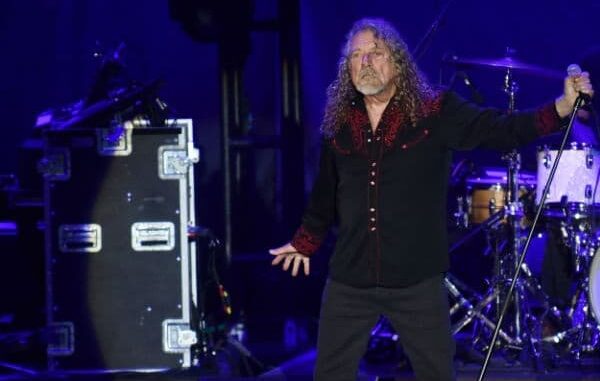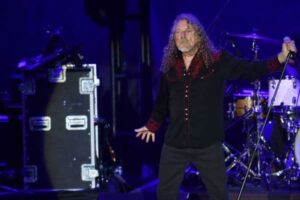
End of an Era: Robert Plant Closes the Curtain on Live Performances
After more than five decades of reshaping the landscape of modern music, Robert Plant has announced that he is stepping away from live performance—bringing an emotional close to one of rock’s most iconic and adventurous stage careers.

In a heartfelt statement released through his official channels, Plant wrote, “The road has been kind to me. The crowds, the music, the energy—there’s nothing like it. But every journey reaches its twilight, and it’s time for me to step back from the stage.”
This announcement marks the end of a staggering era that began in the late 1960s, when Plant rose to fame as the electrifying frontman of Led Zeppelin. With his powerful vocals, magnetic presence, and mystical lyricism, he helped redefine what it meant to be a rock singer. Zeppelin’s thunderous performances, from Madison Square Garden to Knebworth, became legendary. Plant’s primal wail on songs like “Whole Lotta Love,” “Immigrant Song,” and “Kashmir” embedded themselves into the DNA of rock history.

But Plant’s stage legacy doesn’t end with Zeppelin. After the band’s dissolution in 1980, following the death of drummer John Bonham, Plant carved out a solo career that continually defied expectations. From his early solo records like Pictures at Eleven and The Principle of Moments, to his Grammy-winning Americana collaboration with Alison Krauss, and his recent ethereal folk-rock work with Saving Grace, Plant refused to be boxed in.
Over the years, his live performances evolved from bombastic to intimate, from arena-sized epics to delicate acoustic sets. His willingness to reinterpret his legacy rather than live in its shadow made each tour feel like a new artistic chapter rather than a greatest-hits parade. Fans and critics alike often remarked that Plant was one of the few rock legends who aged not only gracefully, but bravely.
In his farewell message, Plant emphasized gratitude: “I’ve had the joy of sharing music across every continent. The voices that sang with me, the hands that clapped in rhythm, the eyes that lit up in every crowd—I carry those moments with me forever.”
He also spoke to the natural conclusion of his live journey: “I’ve never wanted to overstay my welcome. The magic of live performance is in its spontaneity, its urgency. I’ve always said I’d rather step away while it still feels vital than fade into routine.”
While this may mark the end of his touring life, Plant hinted that he is not retiring creatively. “There’s still music in me,” he noted. “It just may not come from a stage anymore.”
Reaction from the music world has been swift and emotional. Fellow musicians, fans, and longtime collaborators flooded social media with tributes to Plant’s impact—not just as a singer, but as an artist who chased authenticity wherever it led. Jimmy Page, his former bandmate, simply posted, “The golden voice of rock. Thank you, Robert.”
Though fans may no longer get to see Plant under the spotlight, his influence will echo for generations. His voice, raw and immortal, shaped not just a band or a genre, but a way of feeling music in the marrow.
As the final curtain falls, the legacy of Robert Plant lives on—etched in vinyl, in memory, and in every soul stirred by the sound of his song.